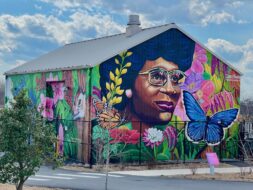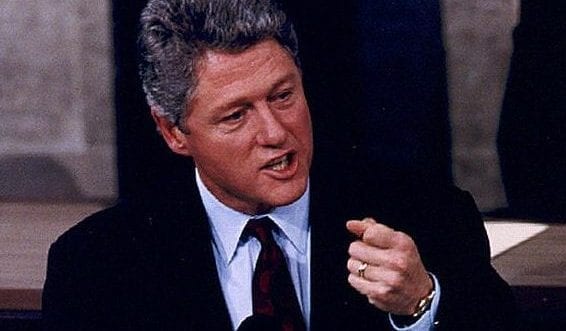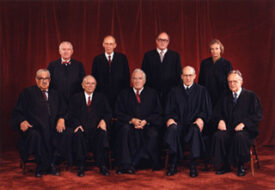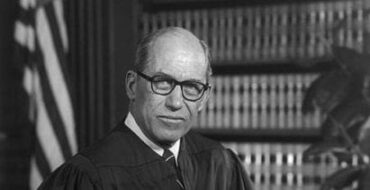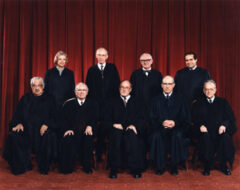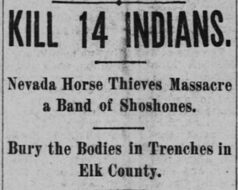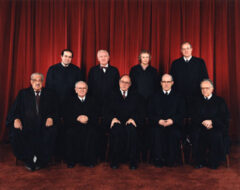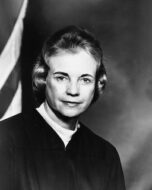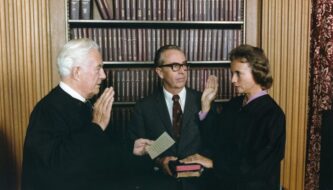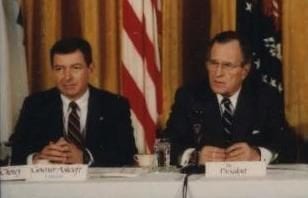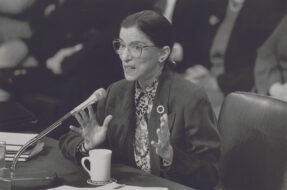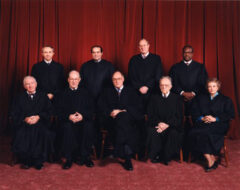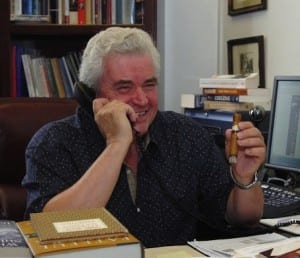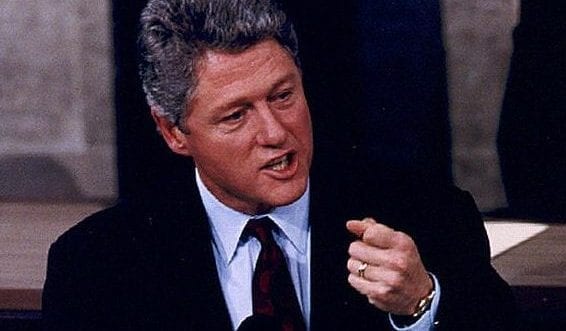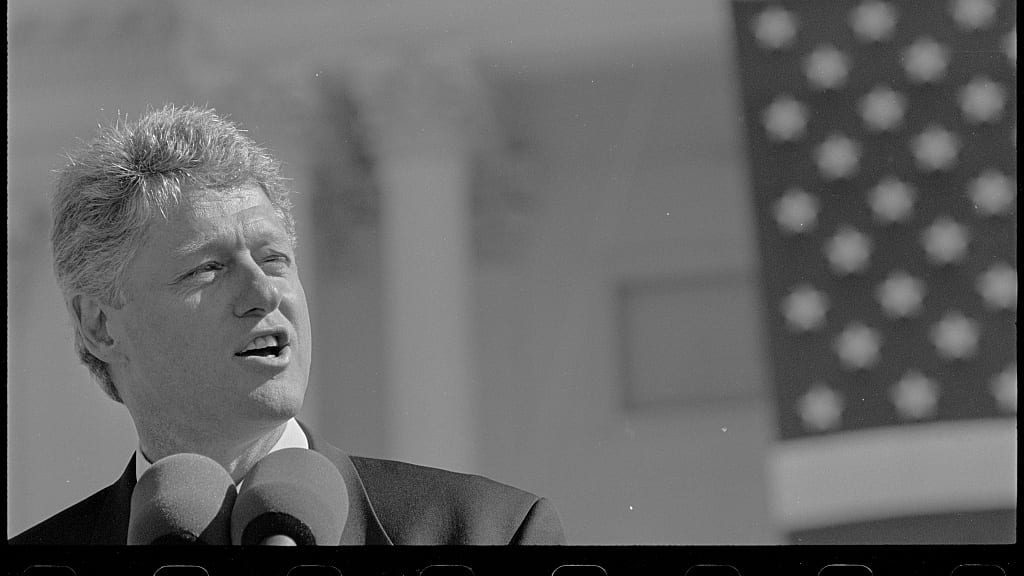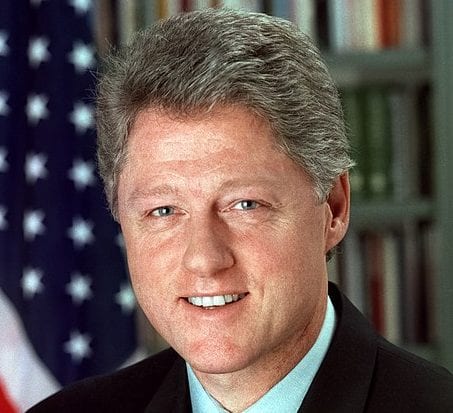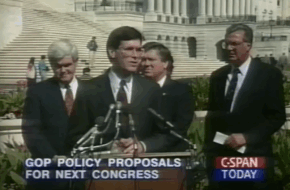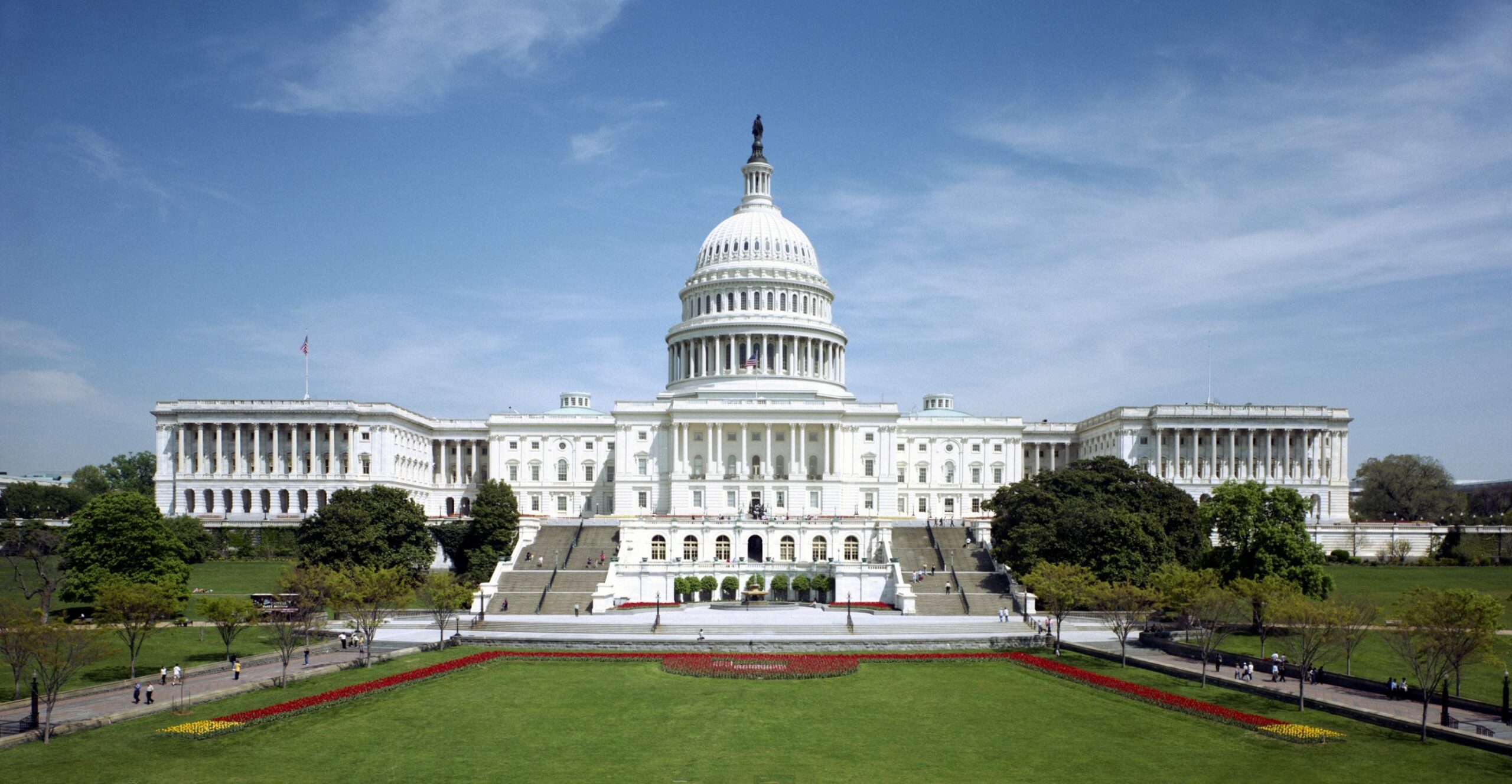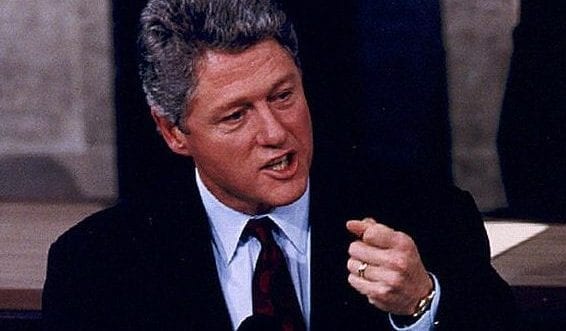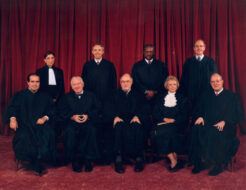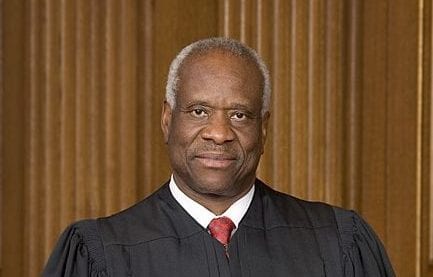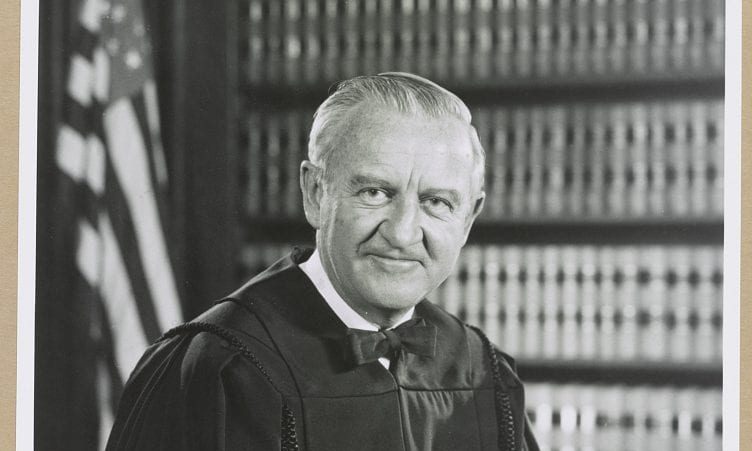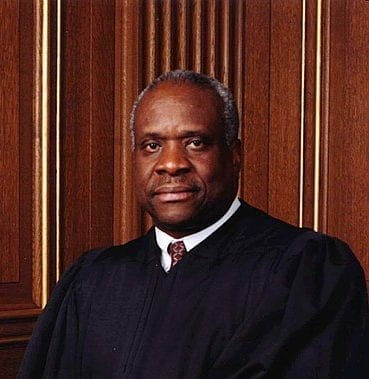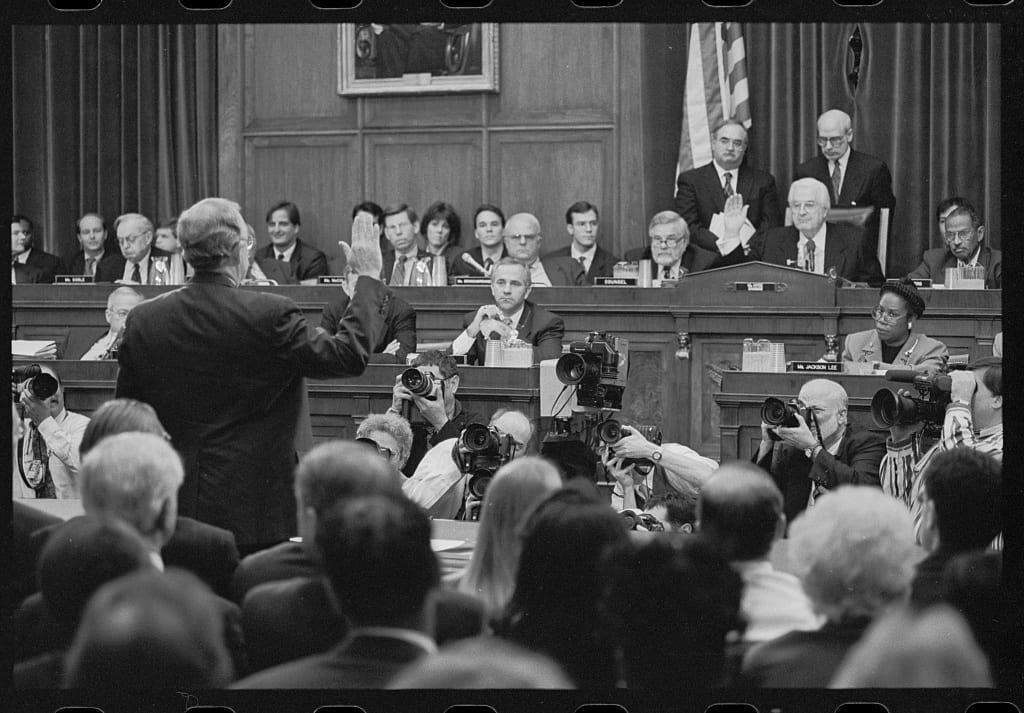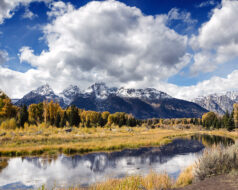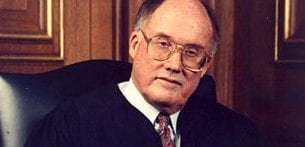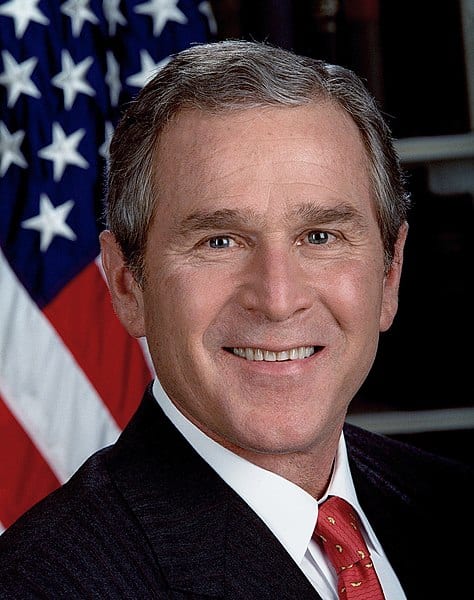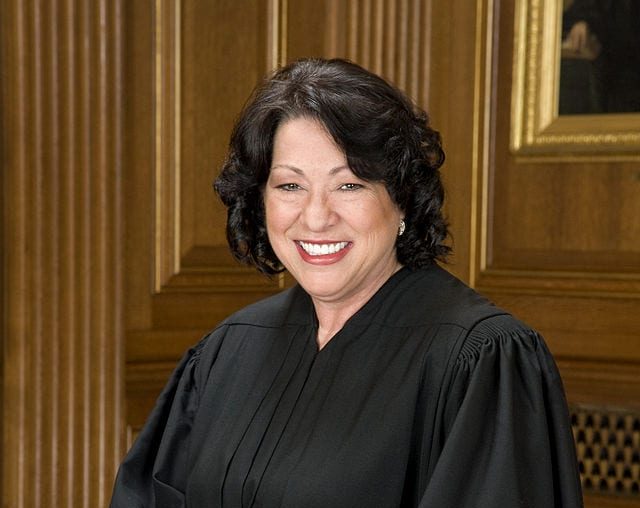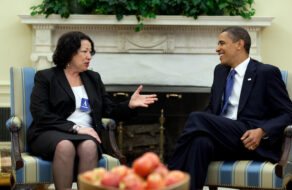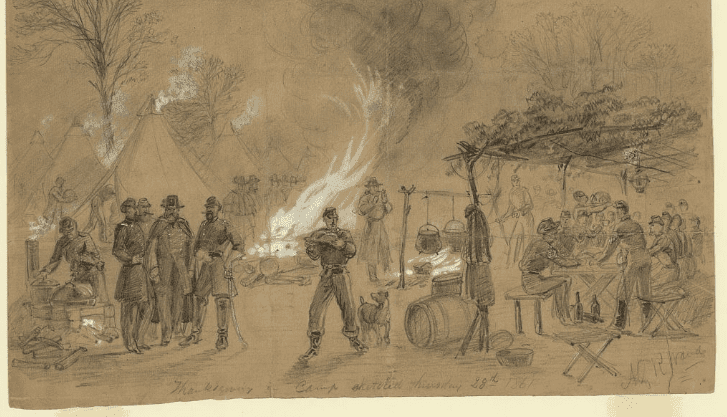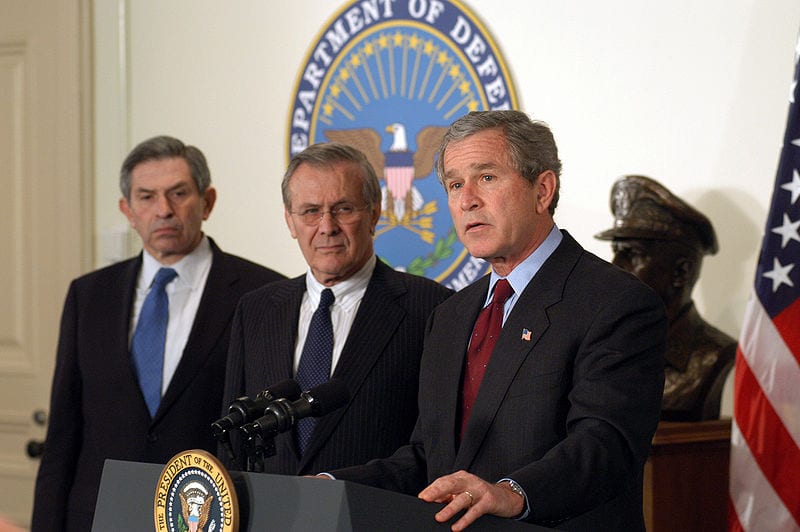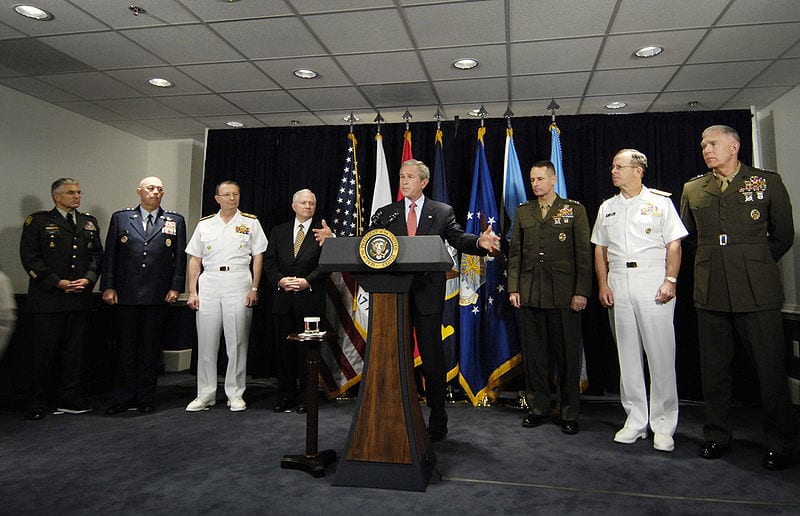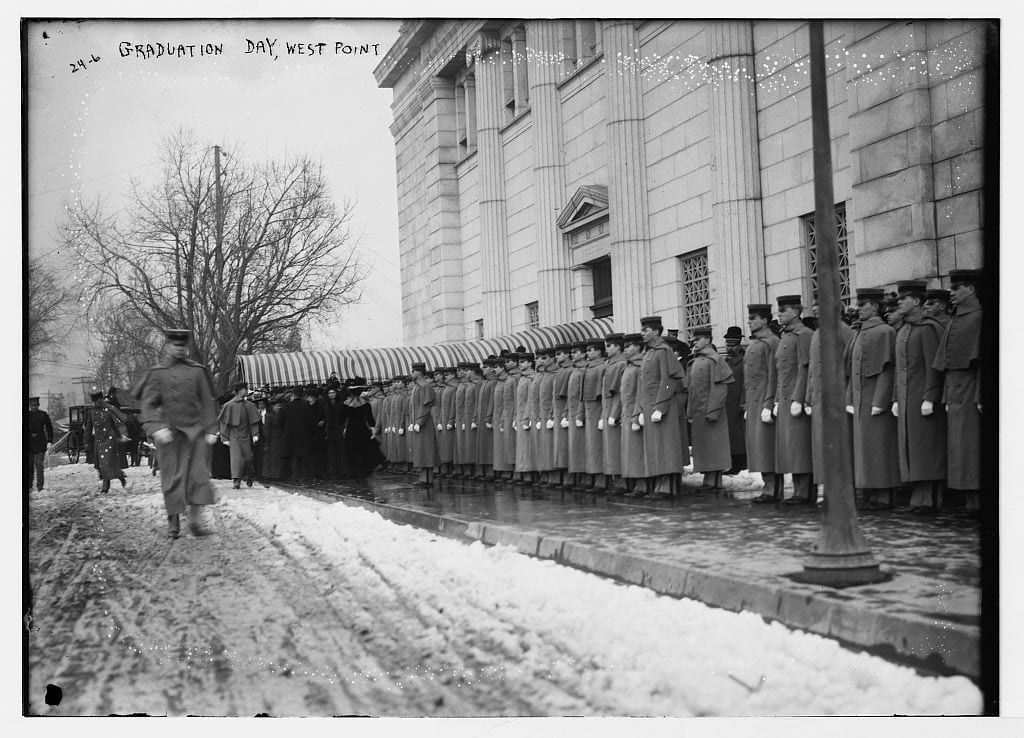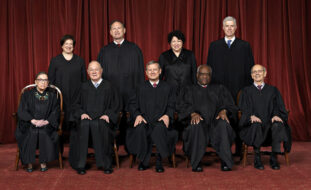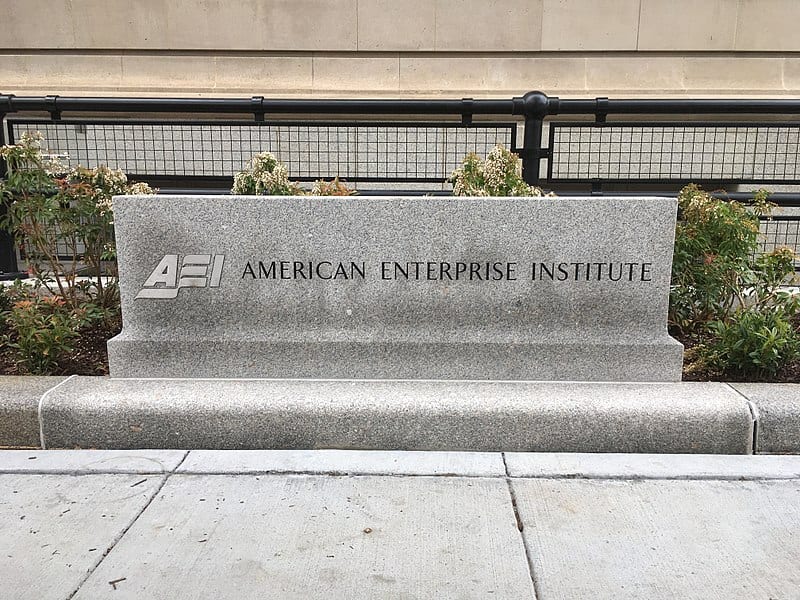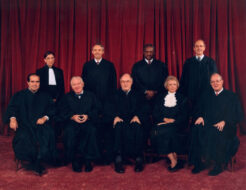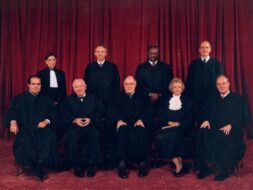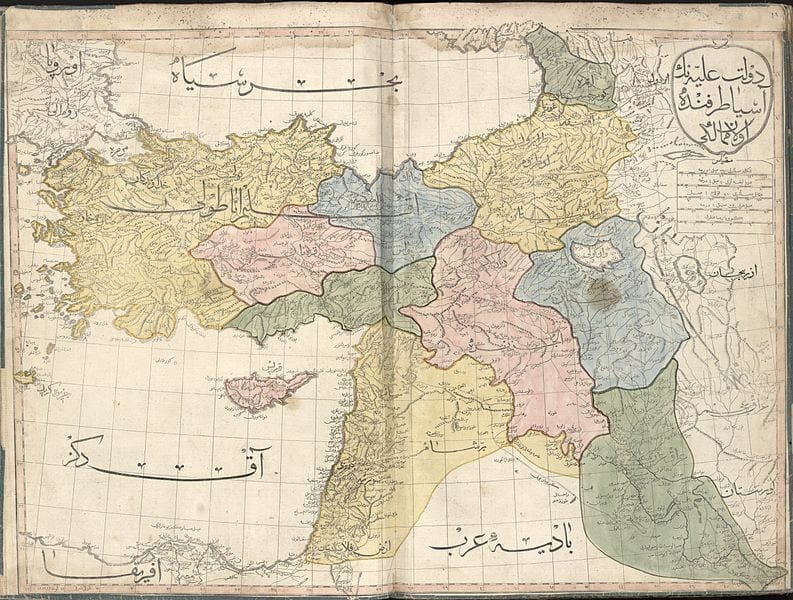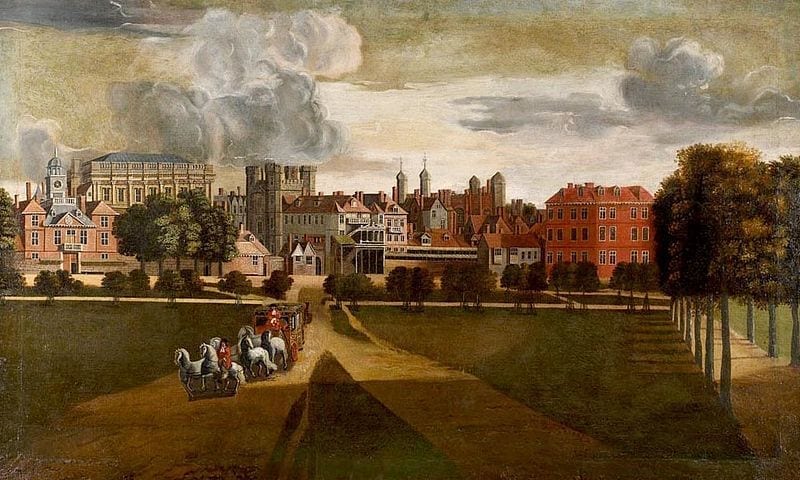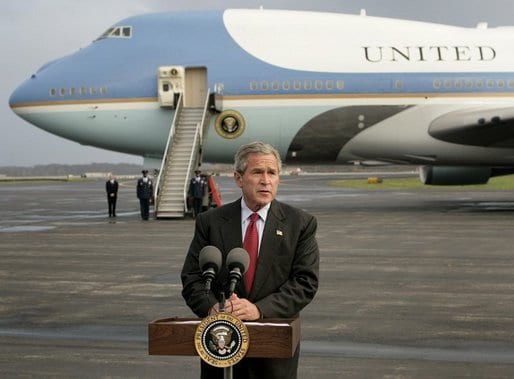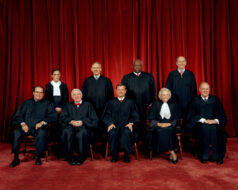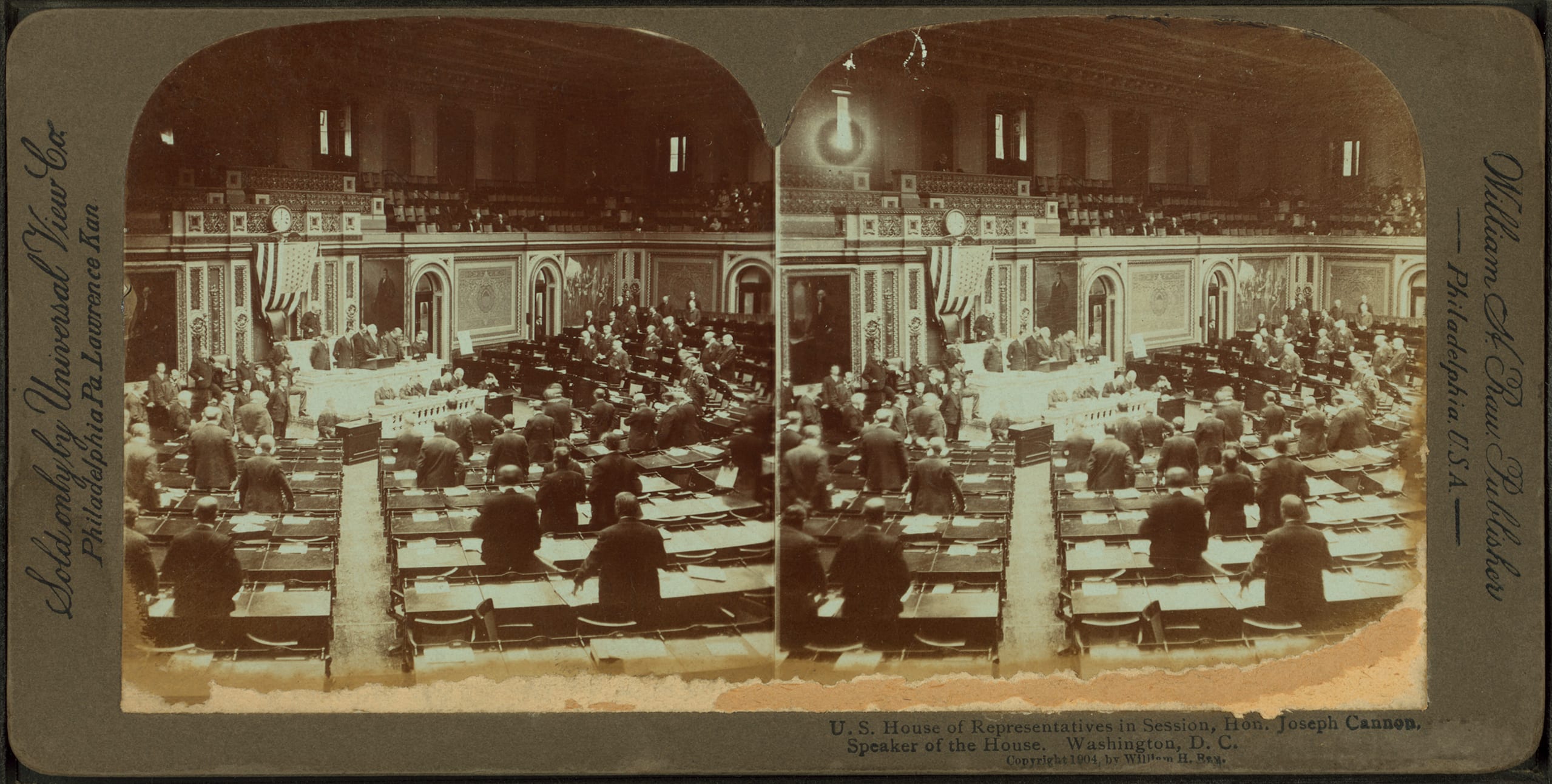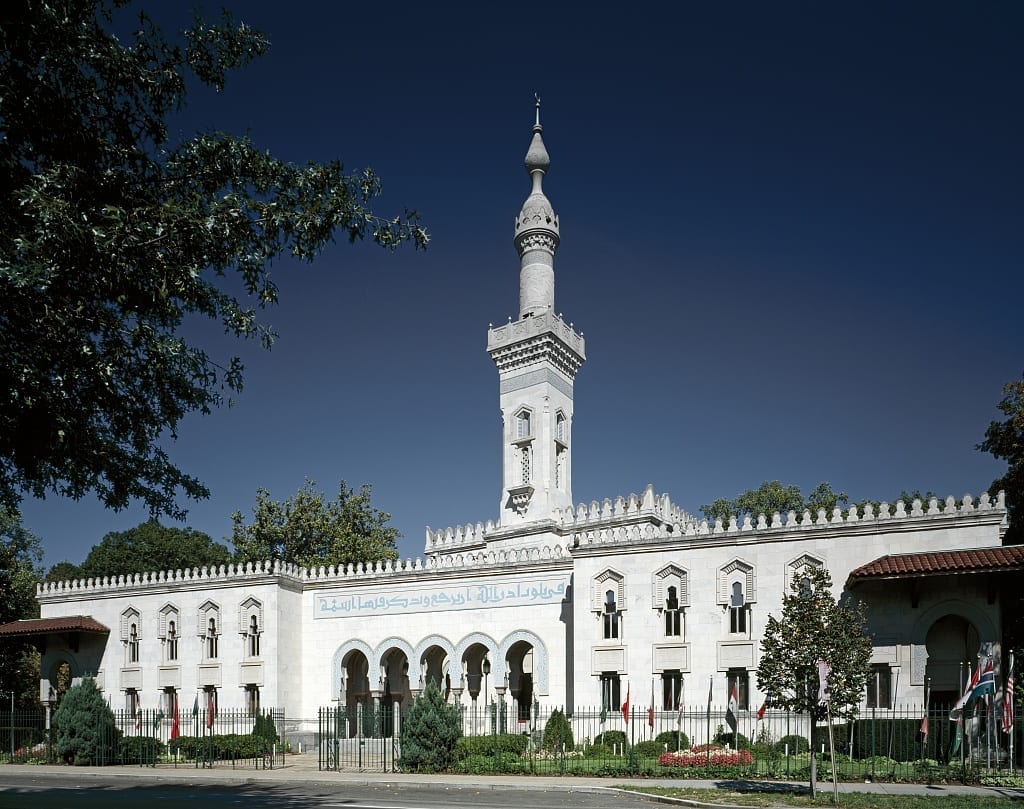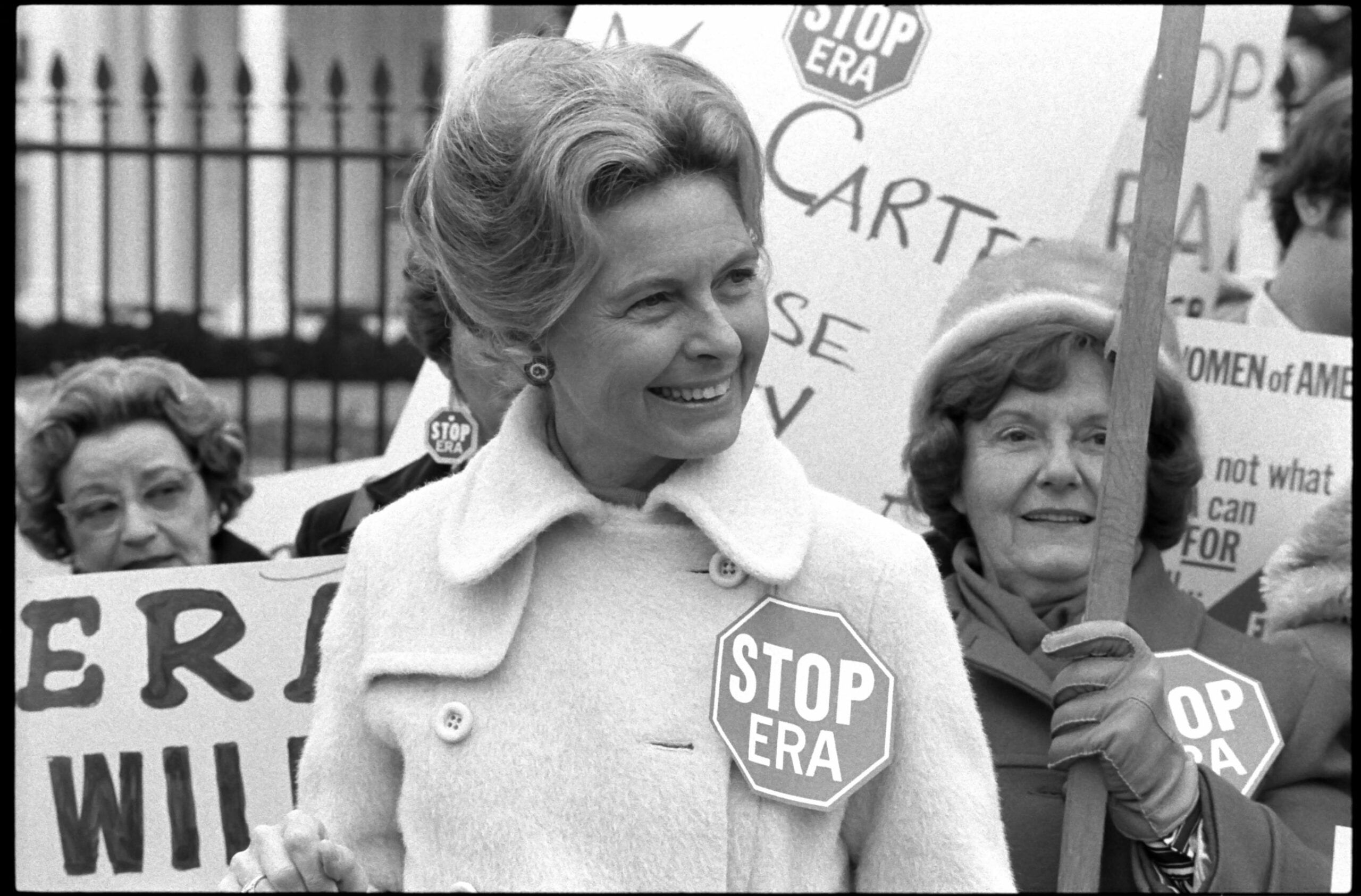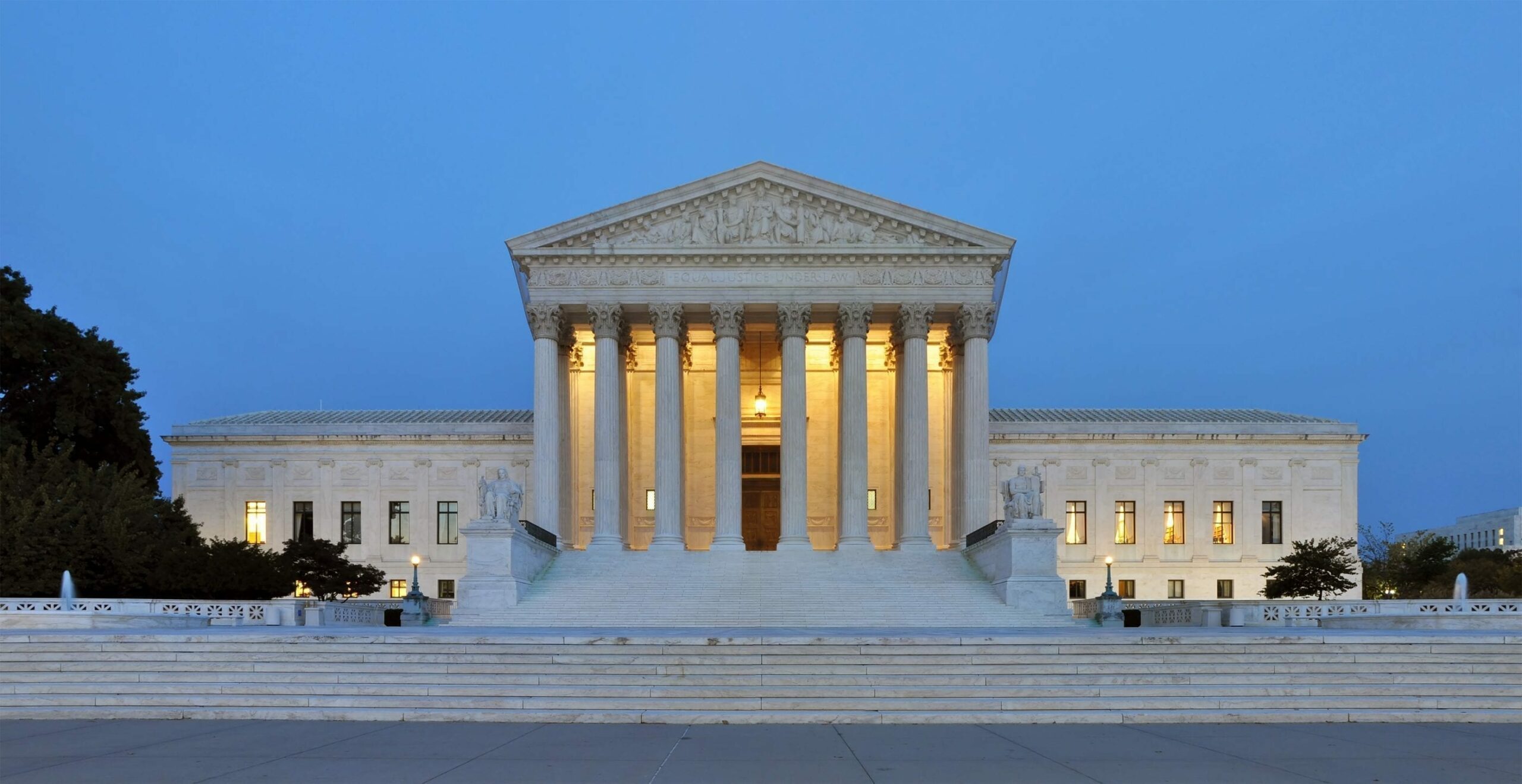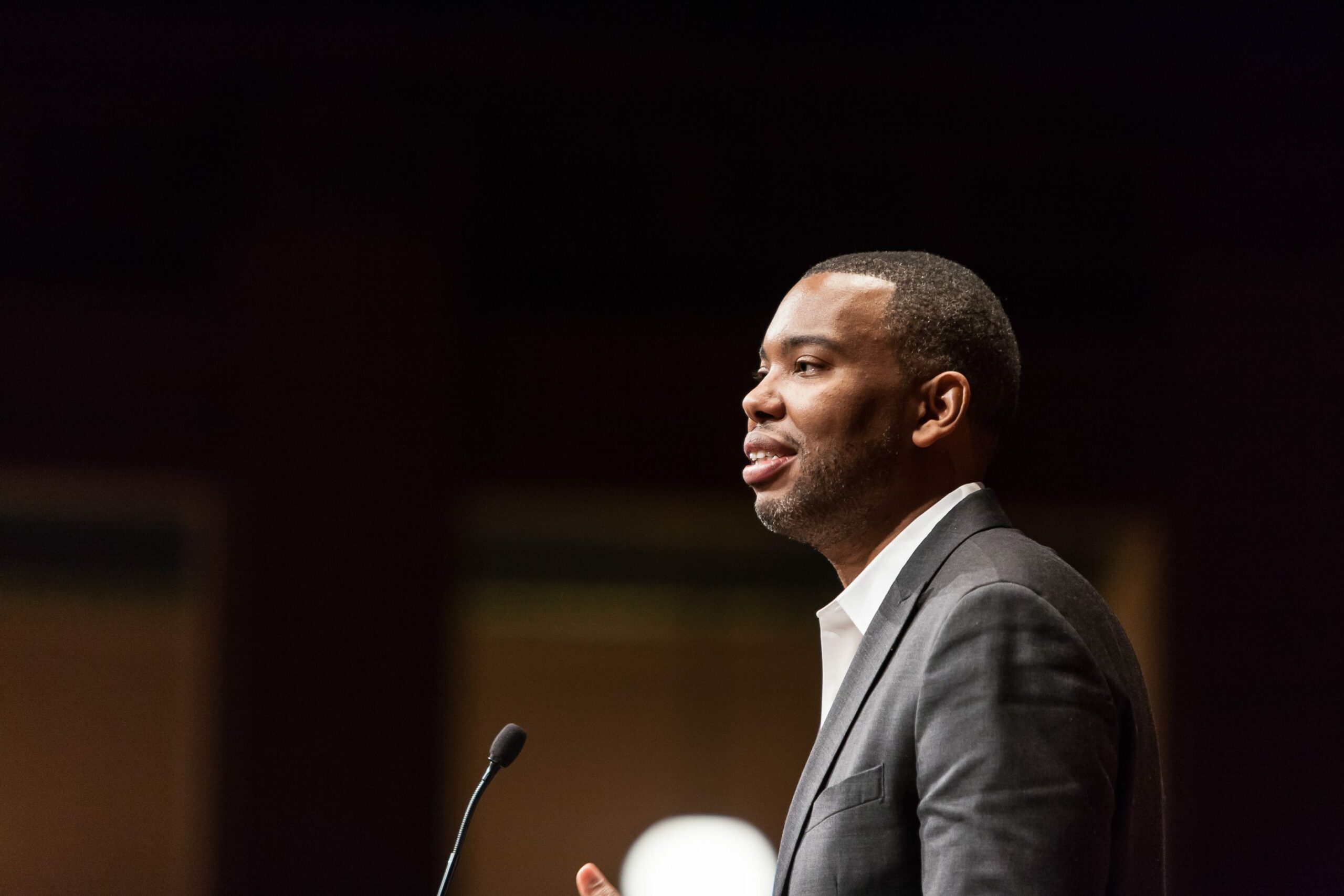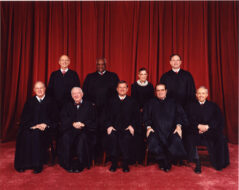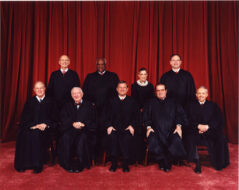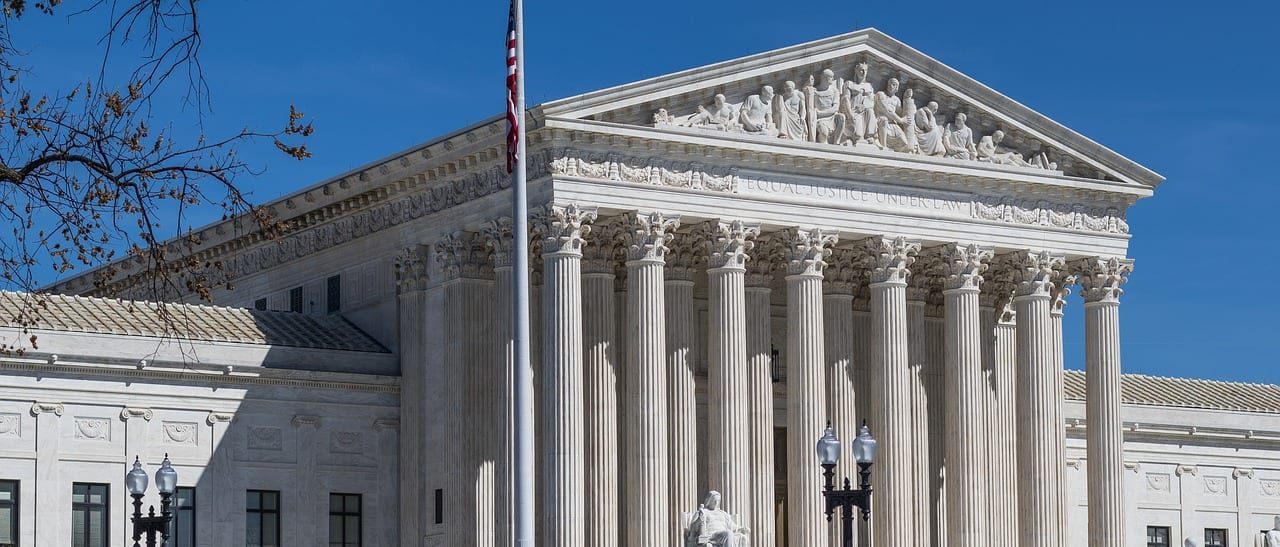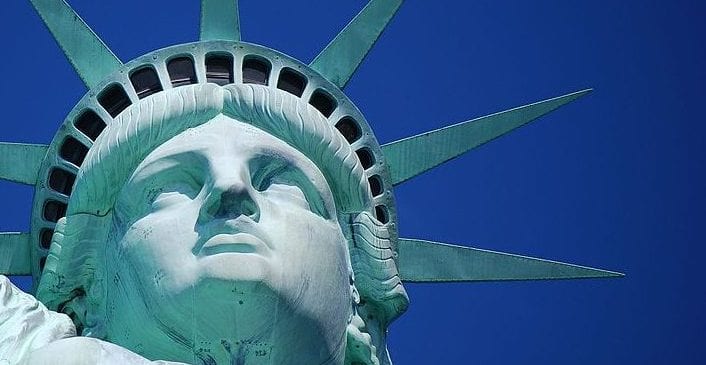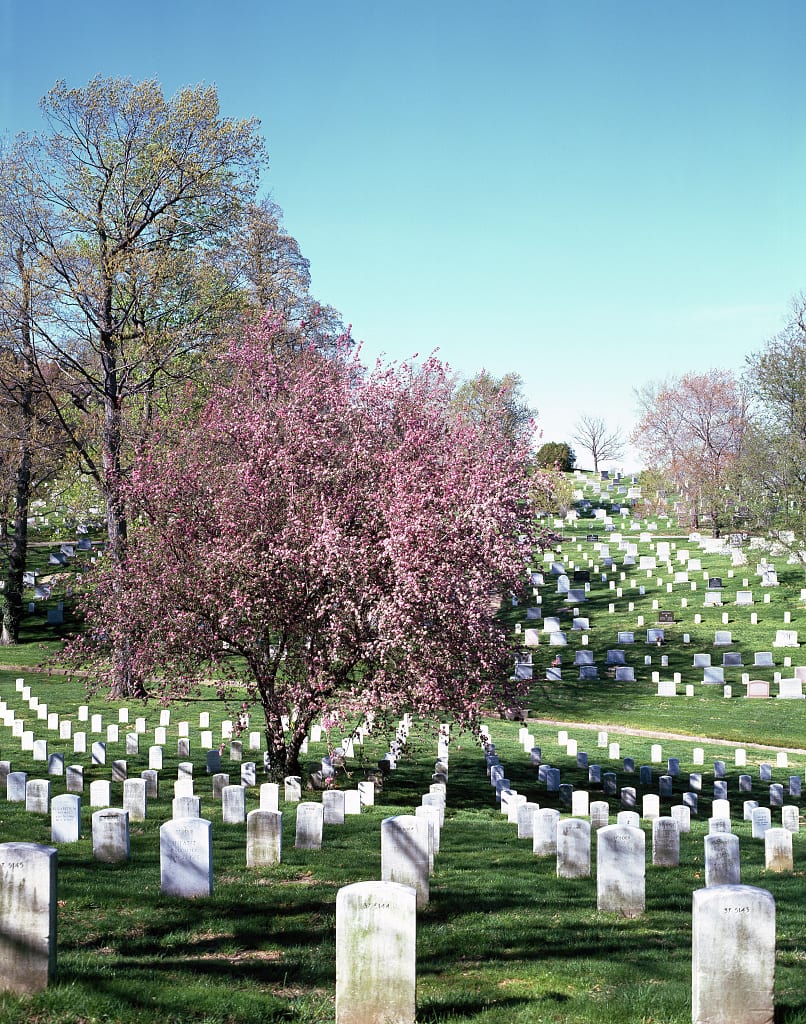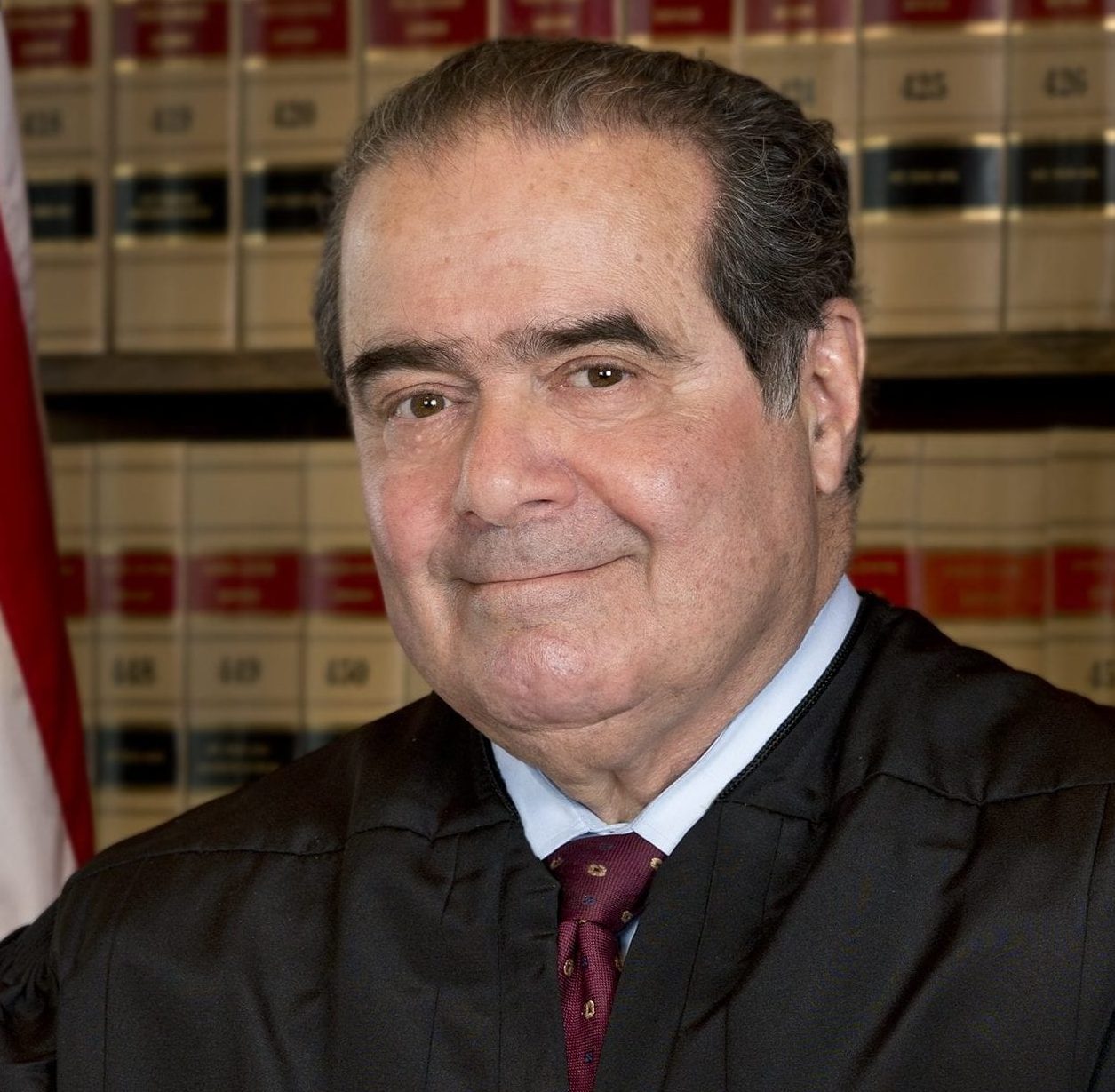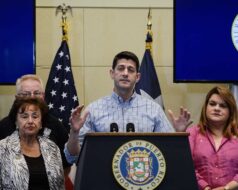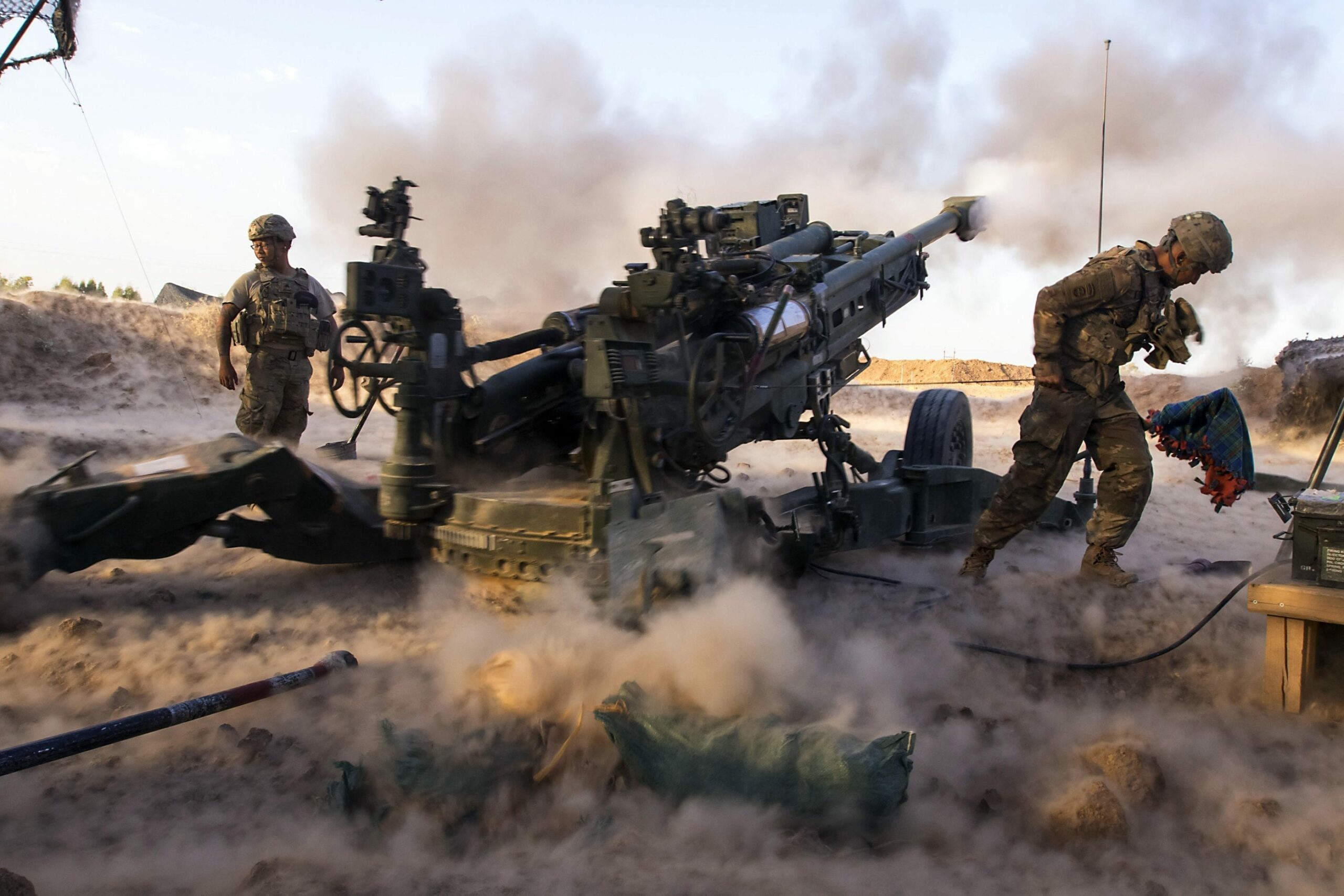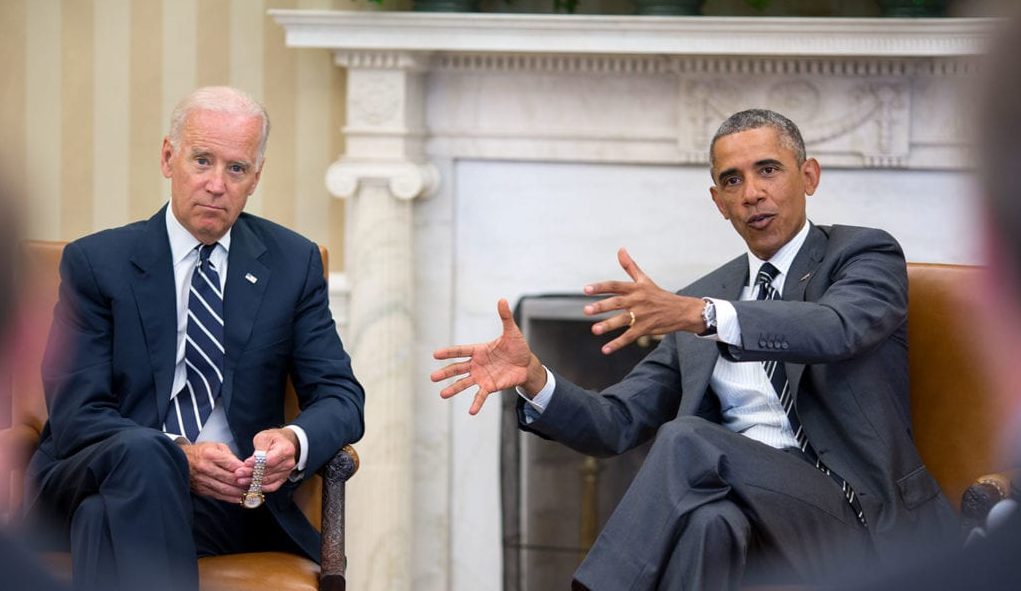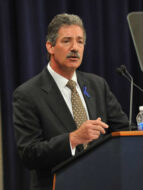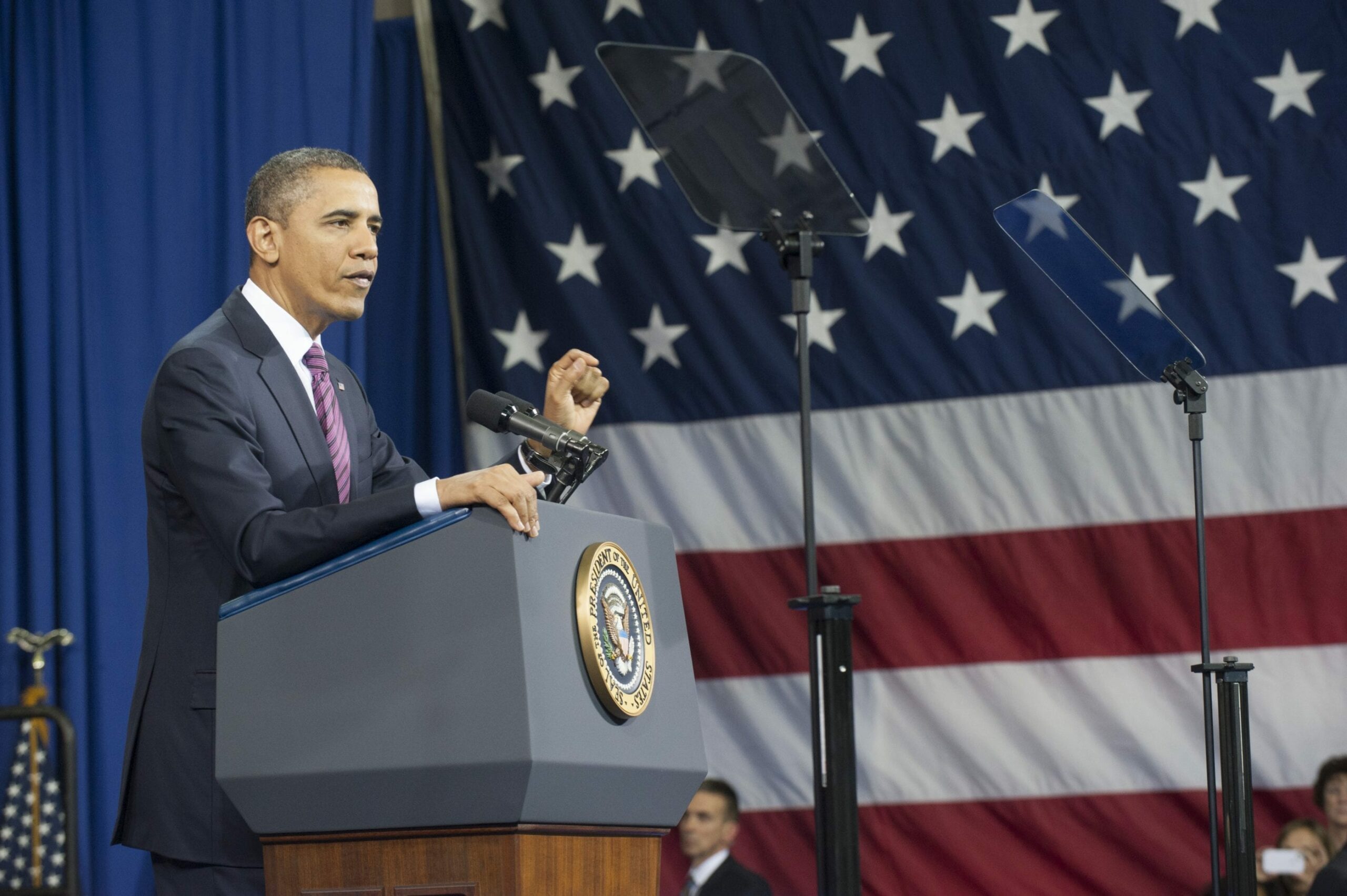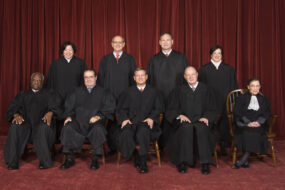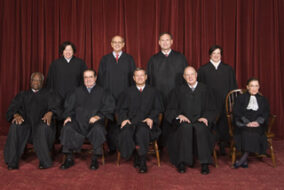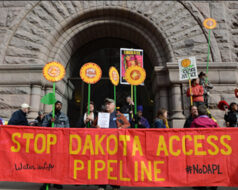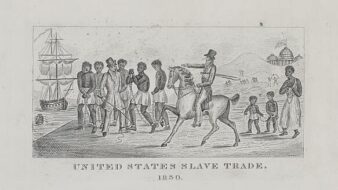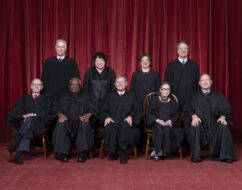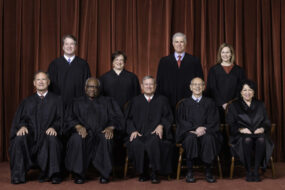
No related resources
Introduction
In 1994, the U.S. Congress passed landmark legislation aimed to end violence against women. The Violence against Women Act (VAWA) increased penalties on these violent crimes and provided funding to research rape, sexual assault, and domestic abuse, among other crimes against women. Authored by House member Patricia Schroeder (D-CO) (1940–) and Senator Joe Biden (D-DE) (1942–), the VAWA was part of the larger 1994 crime bill. Though criminal statutes were permanently incorporated into the U.S. Code, the money provided by this act is temporary and must be renewed. Vice President Biden and President Obama made these remarks when the funding was renewed in 2013.
Source: Available online from the Obama White House Press Office, https://obamawhitehouse.archives.gov/the-press-office/2013/03/07/remarks-president-and-vice-president-signing-violence-against-women-act.
Remarks by Joseph Biden
Those of you who have been around awhile with me know that I quote my father all the time, who literally would say, the greatest sin that could be committed, the cardinal sin of all sins, was the abuse of power, and the ultimate abuse of power is for someone physically stronger and bigger to raise their hand and strike and beat someone else. In most cases that tends to be a man striking a woman, or a man or woman striking a child. That’s the fundamental premise and the overarching reason why John Conyers and I and others started so many years ago to draft the legislation called the Violence against Women Act.
It passed nineteen years ago, and that’s why we shortly thereafter instituted a hotline where women in distress could call for help. I remember, John, when we did that hotline, it was like, well, it will be useful, but I’m not so sure how much it will be used. Well, the truth of the matter is it’s been used a lot and it’s saved a lot of lives. Over two million women have had the courage—the courage—to try to get out of earshot of their abuser, escape from the prison of their own home, and pick up that phone and call to a line that you had no idea who on the other end was going to answer, and to say, I’m in trouble. Can you help me? Can you help me?
I love those men who would say when we started this about why don’t they just leave. Well, if they had one-third the courage that those women—those two million women had who have picked up the phone and called, not knowing what to expect, it would be a whole lot better nation.
We’ve built a network of shelters that are immediately available to women in need because we found out that the vast majority of children who are homeless on the street—Nancy knows and others—were there because their mothers were abused. Imagine fleeing for your life with only the clothes on your back and your child in your arms. The shelter was their only lifeline, and it’s worked.
We also have specialized law enforcement units with trained prosecutors, victim advocates, court personnel who understand the unique challenges of the access. Because of all of you in the audience that are here today, we’ve been able to train judges and train intake officers, so when a frightened woman shows up at the family court and says to the intake officer, “I want to tell you”—“Speak up, will you?” “Well, I just—my”—and they turn around and walk away, because there’s only a very brief window, as all of you know, a very brief window, again, after a woman screws up the courage—the courage—to ask for help.
All these links in the chain have made a difference in the lives of women. It’s one woman, one girl, one person at a time, one case at a time. And you providers know that better than anyone.
With all the law’s success, there are still too many women in this country who live in fear of violence, who are still prisoners in their own home; too many victims that we have to mourn. We knew from the outset in 1994 that there was much more we could have done at the beginning if we were able to get the votes. But we did what was necessary and important, but we knew more had to be done to reduce domestic violence, domestic violence homicides, to provide new tools, as was just spoken to, to protect Native American women, to address the perplexing rate of dating violence among young women, and so much more.
But because of the people on this stage and in this room, every time we reauthorize the Violence against Women Act, we improved it. Every single time, we’ve improved it. (Applause.)
And we did this again. First, we’ve given jurisdiction to tribal courts over those who abuse women on reservations regardless of whether or not they—(applause.) We’re providing more resources to the states so they can be trained as to how to collect evidence, acquire convictions, particularly in prosecutions for rape. We’re going to increase the use of proven models to reduce domestic violence homicides.
We’ve all focused on the tragic gun violence that has been in the news lately, but I want to point something out to you. From 2009 to 2012, 40 percent of the mass shootings in America, other than the celebrated ones you’ve seen—40 percent where there’s four or more people who have been shot, the target has been a former intimate partner or a close family member.
So they go into the office, just like that young man who—or woman who stood in front of you when your husband came with a loaded pistol to shoot you. Forty percent are a consequence of domestic violence.
We created a strong—strong—antiviolence program. Campuses will have more tools to educate students about sexual violence. (Applause.)
So when Congress passed this law that the president will sign today, they just didn’t renew what I consider a sacred commitment to protect our mothers, our daughters, our sisters. They strengthened that commitment. . . .
Look, we all know we have a lot more to do, but we’re going to continue to make progress. And one of the reasons we’re going to continue to make progress is we’re going to have for at least three more years the President of the United States, my friend, Barack Obama. (Applause.)
Remarks by Barack Obama
. . . So on behalf of everybody here and all the lives that you’ve had a positive impact and touched through the Violence against Women Act—the survivors who are alive today because of this law, the women who are no longer hiding in fear because of this law, the girls who are growing up aware of their right to be free from abuse because of this law—(applause)—on behalf of them and all their families, I want to thank Joe Biden for making this one of the causes of his career. (Applause.)
Now, as Joe said earlier, we’ve come a long way. Back when Joe wrote this law, domestic abuse was too often seen as a private matter, best hidden behind closed doors. Victims too often stayed silent or felt that they had to live in shame, that somehow they had done something wrong. Even when they went to the hospital or the police station, too often they were sent back home without any real intervention or support. They felt trapped, isolated. And as a result, domestic violence too often ended in greater tragedy.
So one of the great legacies of this law is that it didn’t just change the rules; it changed our culture. It empowered people to start speaking out. It made it okay for us, as a society, to talk about domestic abuse. It made it possible for us, as a country, to address the problem in a real and meaningful way. And it made clear to victims that they were not alone—that they always had a place to go and they always had people on their side.
And today, because members of both parties worked together, we’re able to renew that commitment. Reauthorizing the Violence against Women Act is something I called for in my State of the Union address. And when I see how quick it got done, I’m feeling—(applause)—makes me feel optimistic. (Applause.)
Because of this bill, we’ll keep in place all the protections and services that Joe described, and, as he said, we’ll expand them to cover even more women. Because this is a country where everybody should be able to pursue their own measure of happiness and live their lives free from fear, no matter who you are, no matter who you love. (Applause.) That’s got to be our priority. That’s what today is about. (Applause.)
Today is about the millions of women—the victims of domestic abuse and sexual assault—who are out there right now looking for a lifeline, looking for support. Because of this bill, they’ll continue to have access to all the services that Joe first helped establish nineteen years ago: the national hotline, network of shelters, protection orders that carry across state lines. And because of this bill, we’re also expanding housing assistance so that no woman has to choose between a violent home and no home at all. That’s what today is all about. (Applause.)
Today is about all the law enforcement officials—like Police Chief Jim Johnson—(applause)—they’re the first to respond when a victim calls for help. And because of this bill, we’re continuing all the training and support that’s proven so effective in bridging some gaps that were in actual enforcement of the law so that we can actually bring more offenders to justice. And we’re giving our law enforcement better tools to investigate cases of rape, which remains a consistently underreported crime in our country. Helping police officers deliver on the most important part of their job—preventing harm and saving lives—that’s what today is all about.
Today is about women like Diane. I’m so grateful Diane shared her story. That takes great courage. (Applause.) And tragically, it is a common story.
I know we’ve got tribal leaders here today, and I want to thank all of you for fighting so hard on behalf of your people—(applause)—to make this bill a reality. (Applause.)
Indian country has some of the highest rates of domestic abuse in America. And one of the reasons is that when Native American women are abused on tribal lands by an attacker who is not Native American, the attacker is immune from prosecution by tribal courts. Well, as soon as I sign this bill that ends. (Applause.) That ends. That ends. (Applause.)
Tribal governments have an inherent right to protect their people, and all women deserve the right to live free from fear. And that is what today is all about. (Applause.)
Today is about all the Americans who face discrimination based on sexual orientation and gender identity when they seek help. (Applause.)
So I want to thank Sharon Stapel, who’s here—where did she go? There she is, right there—(applause)—for the work she’s doing—the great work she’s doing with the Antiviolence Project. But Sharon and all the other advocates who are focused on this community, they can’t do it alone. And then now they won’t have to. That’s what today is all about. That’s what today is all about. (Applause.)
Today is about the women who come to Rosie Hidalgo looking for support—(applause)—immigrants who are victims of domestic abuse. I mean, imagine the dilemma for so many—if your immigration status is tied to a husband who beats you or abuses you, if you’re an undocumented immigrant, you may feel there’s too much to lose by coming forward. The Violence against Women Act already had protections so that victims could call the police without fear of deportation, and those protections saved lives. And because we fought hard to keep them in place, they remain a lifeline for so many women. That’s part of what today is all about. (Applause.)
Today is about young women like Tye, who was brought into the sex trade by a neighbor when she was twelve years old. Tye was rescued with the help of an organization led by trafficking survivors. Today, she’s enrolled in college. She’s working full time to help at-risk girls stay out of the sex trade. (Applause.) Couldn’t be prouder of her. So proud of her. (Applause.) So with this bill, we reauthorize the Trafficking Victims Protection Act to help more girls turn out like Tye. That’s what today is all about. (Applause.)
So today is about all the survivors, all the advocates who are standing on this stage. But it’s also about the millions more they represent—that you represent. It’s about our commitment as a country to address this problem—in every corner of America, every community, every town, every big city—as long as it takes.
And we’ve made incredible progress since 1994. But we cannot let up—not when domestic violence still kills three women a day. Not when one in five women will be a victim of rape in their lifetime. Not when one in three women is abused by a partner.
So I promise you—not just as your president, but as a son, and a husband, and a father—I’m going to keep at this. I know Vice President Biden is going to keep at it. My administration is going to keep at it for as long as it takes.
And I know that all the advocates up here, all the legislators—Republican and Democrat—who supported this, I know they could not be prouder of the work that they’ve done together. And I think I speak for all of them when we say we could not have done it without you.
So with that, let me sign this bill. (Applause.)
(The bill is signed.)
Guidance Regarding Marijuana Enforcement
August 29, 2013
Conversation-based seminars for collegial PD, one-day and multi-day seminars, graduate credit seminars (MA degree), online and in-person.

